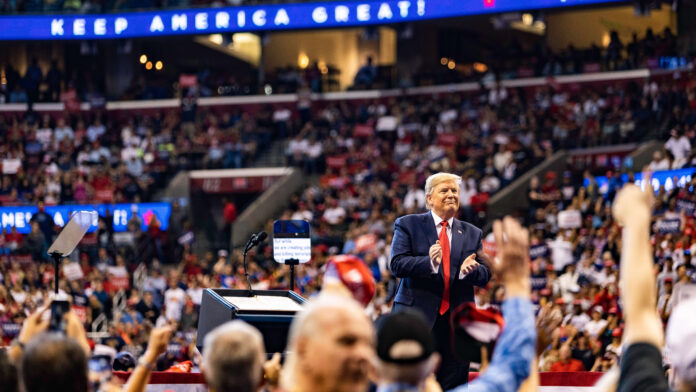Former President Trump’s march towards securing the GOP presidential nomination has unveiled a nuanced electoral landscape, marked by victories that illuminate both his strengths and vulnerabilities in the quest to reclaim the White House. His recent wins over rival Republican Nikki Haley in New Hampshire and South Carolina have not only solidified his frontrunner status within the party but have also laid bare underlying challenges.
In New Hampshire, Trump’s resounding victory over Haley belied a palpable weakness among independent voters, a critical demographic that could sway the outcome of the general election. Similarly, in South Carolina, while Trump managed to triumph over Haley in her home state, the outcome underscored a notable portion of moderate Republicans who have yet to throw their support behind him. Haley’s superior performance in suburban areas and among moderate voters signals a battleground where Trump’s campaign must redouble its efforts, particularly given that around 40% of Haley’s supporters indicated reluctance to back Trump in the general election.
“Once we get into the general election and Republicans don’t have a choice, some of those voters will come home, but in a close election, those voters are why Trump lost in 2020,” remarked Alex Conant, who worked on Sen. Marco Rubio’s 2016 presidential campaign, emphasizing the significance of appealing to moderate Republicans.
Trump’s campaign, however, remains undeterred by the challenges highlighted in primary exit polls, choosing instead to focus on general election polling data that portrays him ahead of President Biden in key swing states. Jason Miller, a senior adviser to Trump, pointed to polling averages from RealClearPolitics, indicating Trump’s lead over Biden in crucial battlegrounds such as Arizona, Georgia, Michigan, and Nevada.
Nevertheless, skepticism persists within Biden’s camp, with a belief that Trump’s numbers may falter as the election draws nearer and more voters begin to scrutinize his candidacy. Marc Thiessen, a former George W. Bush White House official, noted on Fox News, “When he says this is the most united Republican party he’s ever seen, it is not the most united Republican Party, and 59 percent of those Haley voters said they’re not voting for him.”
As the race intensifies, Trump’s ability to broaden his appeal beyond his core supporters becomes paramount. With the general election looming, the battle for the White House is poised to be fiercely contested, with each candidate vying for the support of a diverse electorate. The outcome hinges not only on mobilizing their respective bases but also on winning over crucial swing voters and navigating the complexities of a polarized political landscape.
By: Montana Newsroom staff




